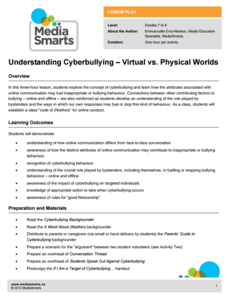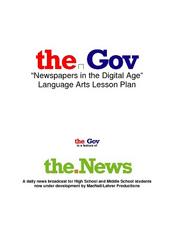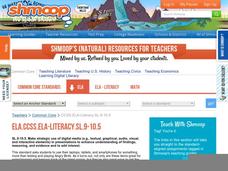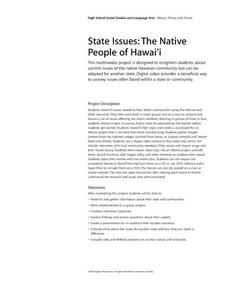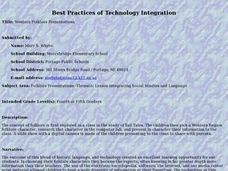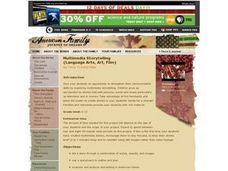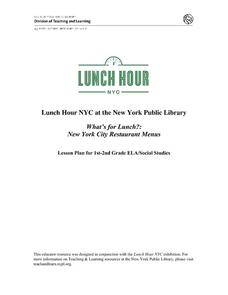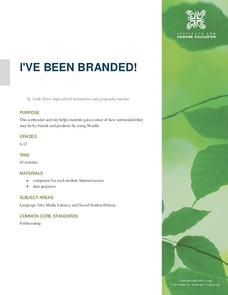Utah Education Network (UEN)
Evaluating the Format of Informational Text
Make your learners aware of the advantages and disadvantages of using different media in presentations. This straightforward resource evaluates media formations such as print, digital text, and videos. Although the subject of ballet is...
Florida Center for Reading Research
Fluency, Letter-Sound Correspondence, Make a Match
An activity tests the fluency skills of young readers. Scholars match initial sound cards to letter cards. Pairs take turns and work to locate the most matches before the timer goes off. The activity ends with a peer evaluation.
Curated OER
Computer Basics
Students review basic terminology that they would use to reference computers in media arts. In this computer terminology lesson plan, students use terms frequently.
Media Smarts
Understanding Cyberbullying — Virtual vs. Physical Worlds
Spend a few days discussing cyberbullying with an engaging lesson plan. Opening discussion questions get the conversation started while quotes and articles continue thoughtful dialogue. Small group activities and role-play scenarios...
Curated OER
1900 America: Primary Sources and Epic Poetry
Using Walt Whitman's Song of Myself and Hart Crane's The Bridge as models, class groups first craft their own epic poems for 1900 and, using primary sources, create a multi-media presentation that captures the sights and...
Curated OER
Hate 2.0
Combat hate online by bringing it into the light. Begin by giving learners a quiz, then lead a discussion based on the issues the quiz brought up. As a class, develop strategies to confront online hate. Assign different venues to groups...
Curated OER
Digital Storytelling
Scholars of all ages can use the various tools of technology to construct and illustrate a story. Utilizing this resource, learners work with a partner to brainstorm and draft a story based on personal experience. They use computer...
Curated OER
Newspapers in the Digital Age
Is journalism more or less reliable with the influx of Internet sources? Learners investigate the issues of freedom of speech, journalistic ethics, and social responsibility in the age of Twitter and Facebook. After examining the...
Shmoop
ELA.CCSS.ELA-Literacy.SL.9-10.5
High schoolers know how to use technology, but they often need more training on how to use it effectively for educational or professional purposes. Try out the activities described here to get your pupils thinking about interesting ways...
Curated OER
State Issues: The Native People of Hawaii
Students research issues about their state and community. They work in groups to create a multi-media presentation highlighting the issues.
Curated OER
Digital Parts of Speech
High schoolers investigate different parts of speech by creating digital skits. In this digital education activity, students collaborate in groups to research the Internet for clips and music that represent the different parts of speech....
PBS
Journalism in War Time: What Does the Public Need to Know?
A viewing of the documentary War Feels Like War, launches an exploration of the importance of accurate and comprehensive war reporting. Groups investigate various news agencies and assess the factors that influence their stories. A...
Curated OER
ASTHMA POSTER CAMPAIGN
Learners examine the condition, triggers, and ways to cope with asthma, compare their previous knowledge of asthma with new information presented in an educational video, and use information about asthma to the creation of an asthma...
Curated OER
All About Our Town
Pupils explore brochure writing. They work in groups to brainstorm and categorize important places in their community. In addition, they gather information from the Internet, take pictures using a digital camera, and create a community...
Novelinks
Sense and Sensibility: Final Assessment: Movie Maker
Assess your class's understanding of Jane Austen's Sense and Sensibility with a fun and creative final project. Using what they have learned about the novel's characters, they create presentations featuring music and images that...
Teaching Tolerance
Understanding and Evaluating Online Searches
With billions of options to choose from, how can people determine which online sources are reliable? Using an informative resource, pupils first discuss and evaluate a sample search result handout. Next, partners create a checklist for...
Curated OER
Western Folklore Presentations
Learners choose a folktale character to research using electronic encyclopedia, software, the Internet, media center and printed material. They focus their research around specific criteria to force the students to be selective and...
Curated OER
The Power of Images
Students explore emotions represented in artwork. In this cross curriculum social studies and art lesson, students explain examples of political and social issues expressed in artwork by Dorthea Lang, Diego Rivera, Dan Eldon, as...
Curated OER
Credible Sources on the Internet: What to Trust, What to Dismiss and When to Cite a Source
Wait, you mean researchers don't all use Wikipedia? Teach your class about intelligent research with a lesson about evaluating digital sources. The lesson starts with a quickwrite and includes vocabulary exercises and several...
Curated OER
Publishing a Book Review
Pairs use desktop publishing software, as well as digital video and camera equipment, to craft a book review. These reviews are then shared with others in the school community through the class or school website.
Curated OER
Multimedia Storytelling
Experiment with multimedia storytelling. After watching a segment of American Family, first, middle and high schoolers tell a story about their families, clarifying the setting, characters, and script. They work on setting...
New York Public Library
What's for Lunch?: New York City Restaurant Menus
Do you remember the days when a cup of coffee cost five cents? At A.W. Dennett restaurant in 1894, you could buy a five-cent cup of coffee and as well as a five-cent slice of pie to accompany it. The menu from that year is a primary...
Curated OER
What's in the Time Capsule? A Technology-Connected Lesson Plan
Twelfth graders use computers and the Internet to research a specified area, word processors to prepare an essay, a digital camera, a video camera gather visuals, and a scanner to add visuals to a PowerPoint presentation as they discover...
Institute for Humane Education
I've Been Branded!
How many pairs of Nikes® or Apple® products are in the average American home? What makes someone buy one particular type of laundry detergent over another? Scholars grapple with these questions as they develop a list of brands they use...





